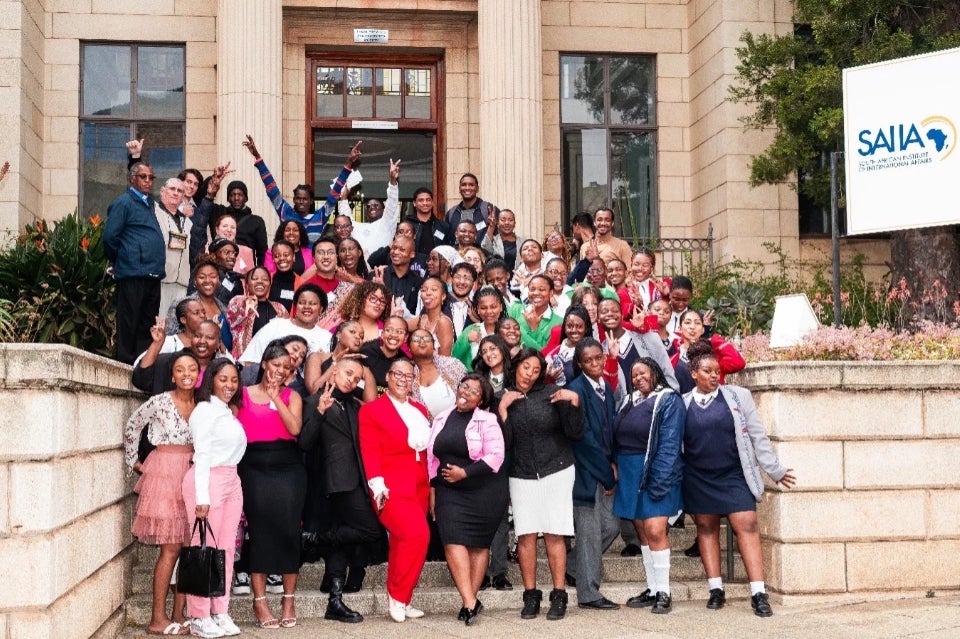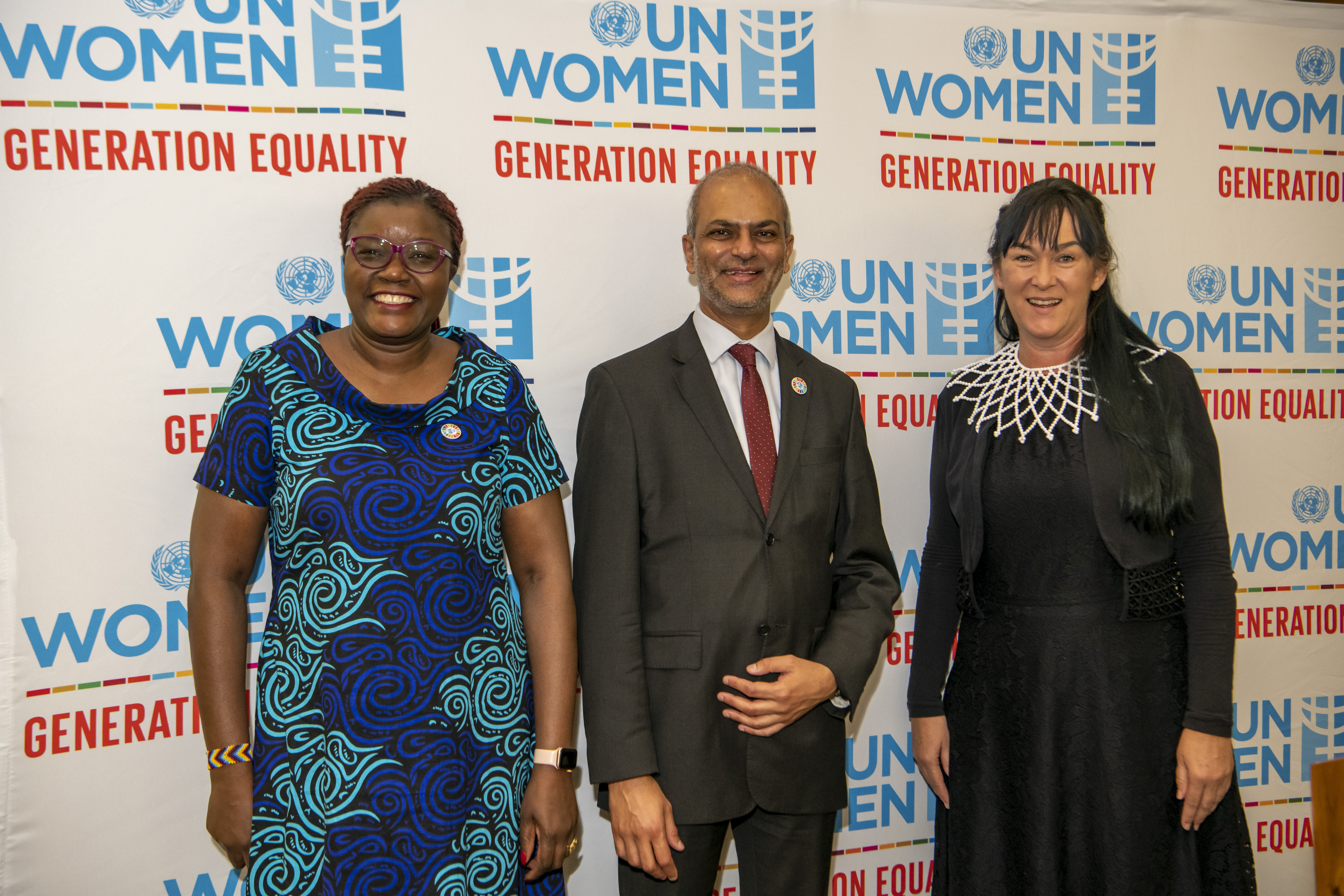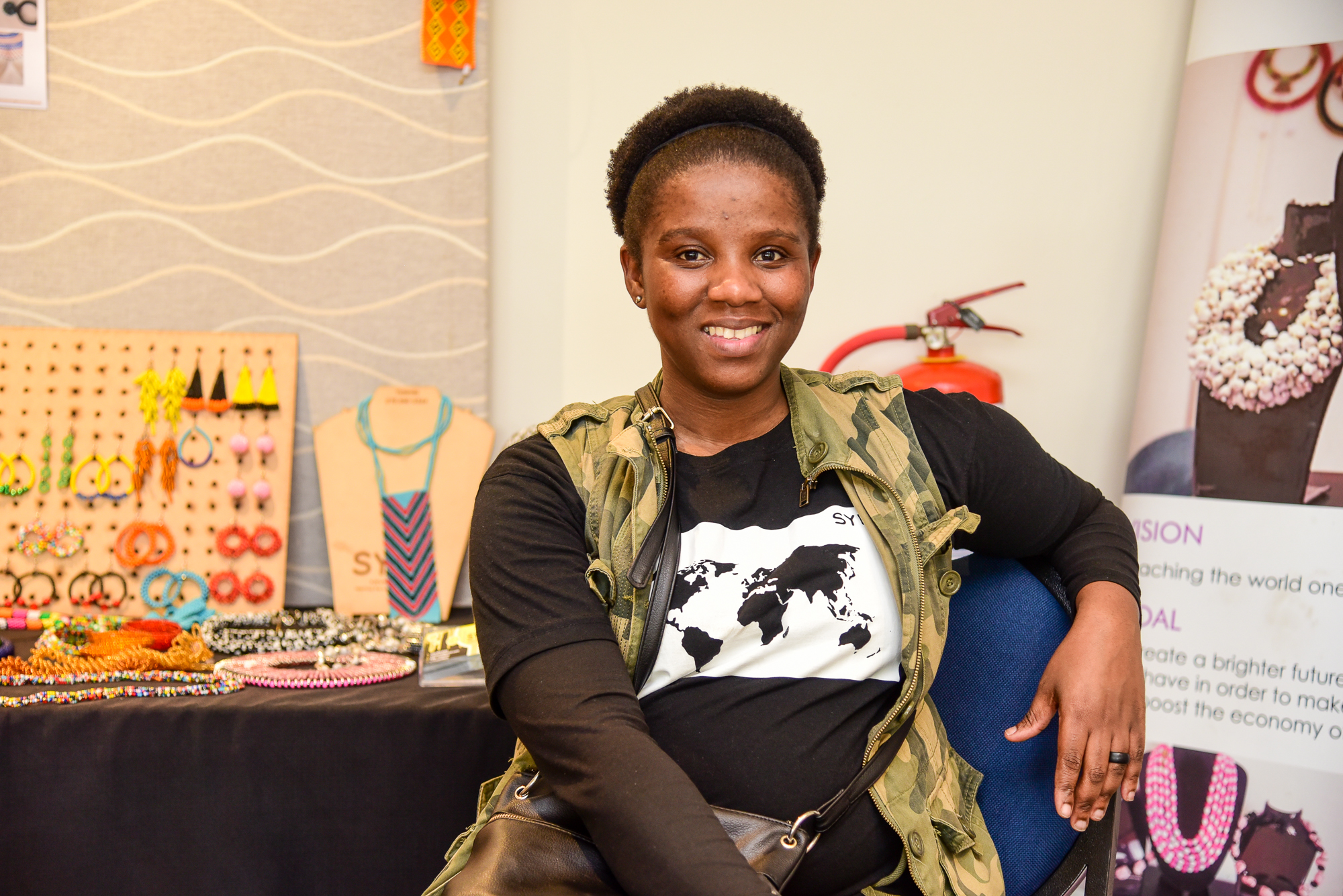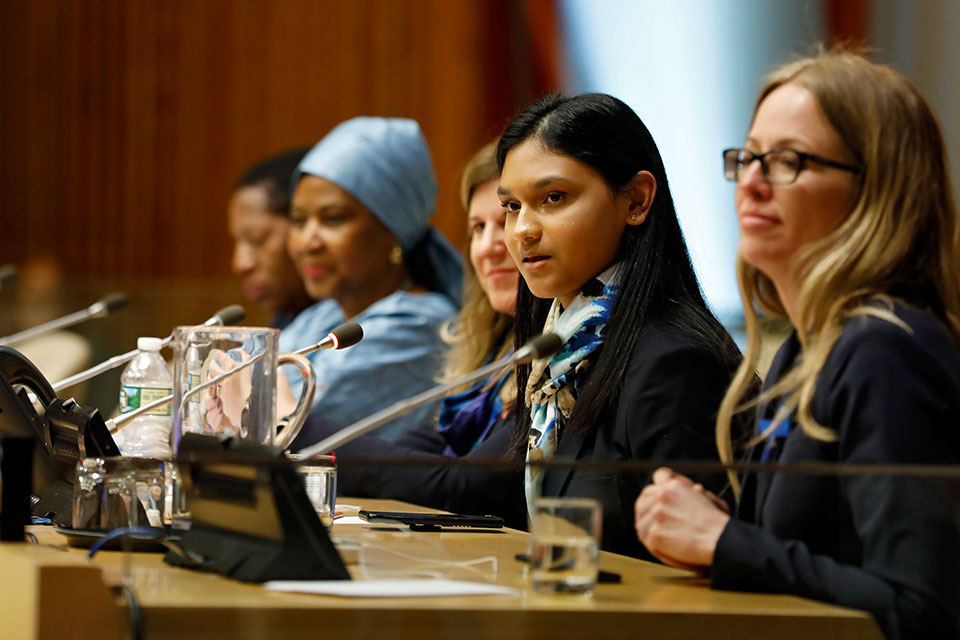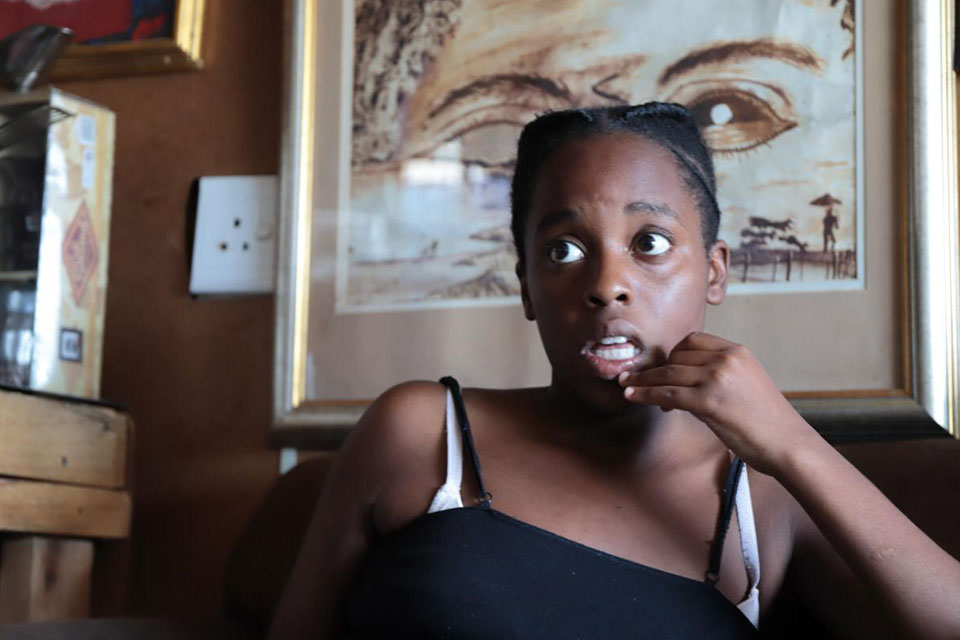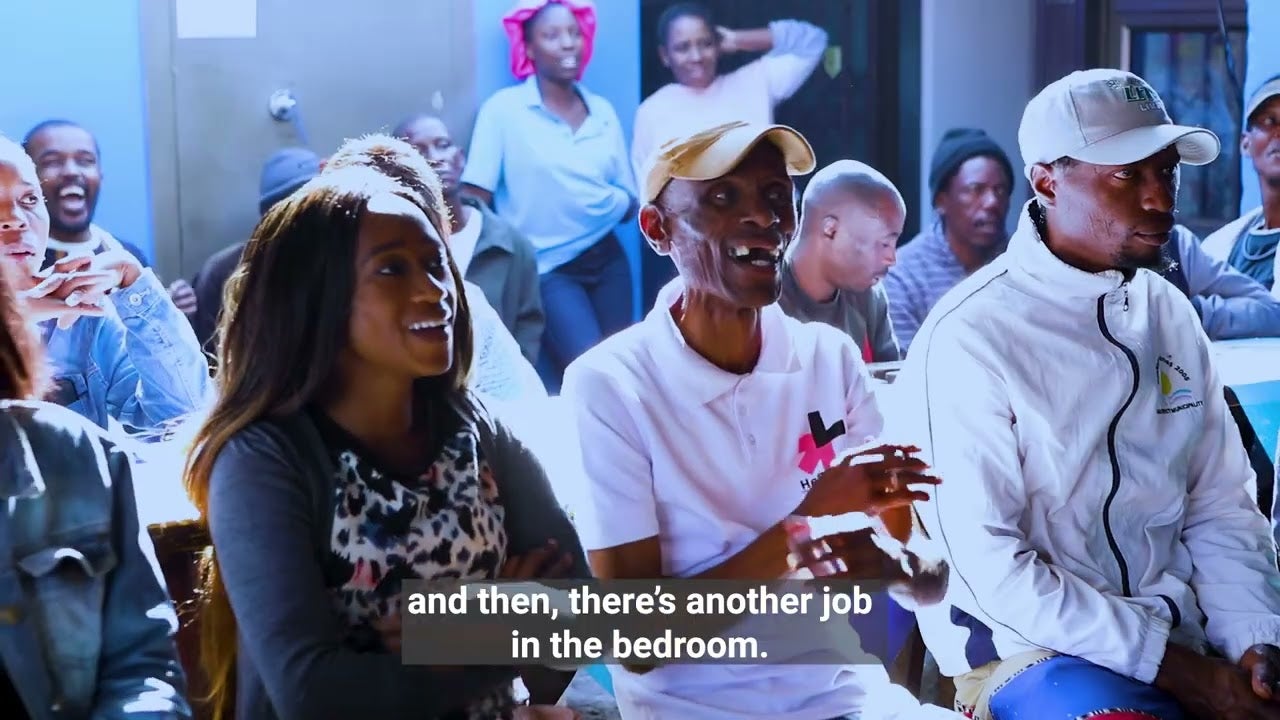Generation Equality in South Africa
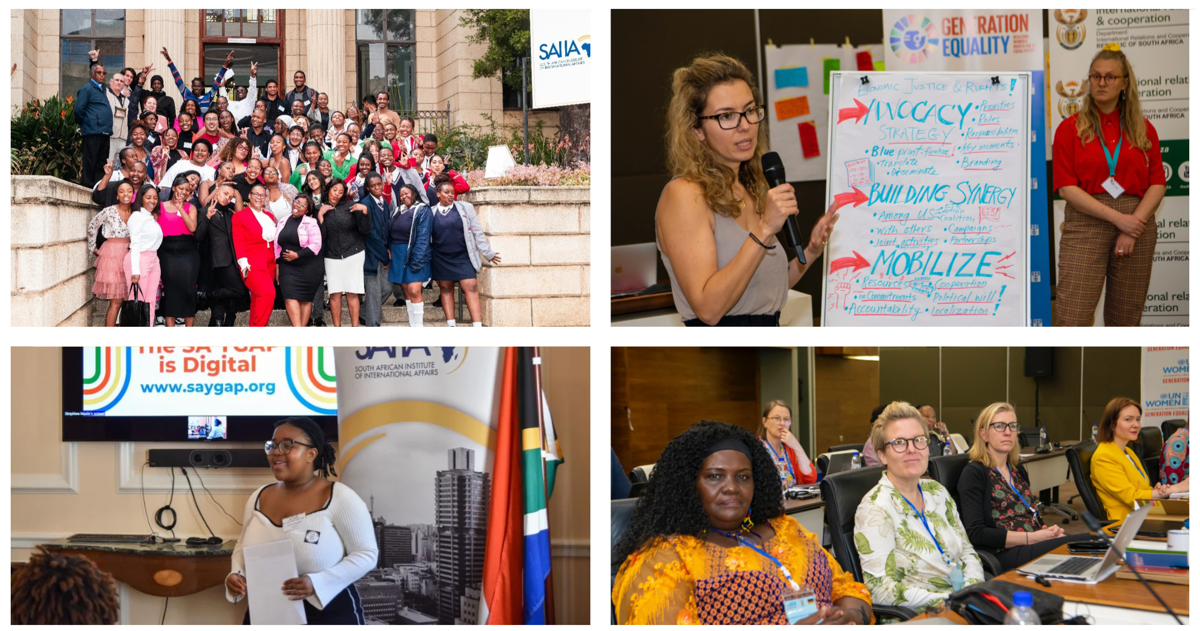
How is Generation Equality implemented in South Africa?
UN Women South Africa Multi-Country Office partnered with youth from the South African Institute for International Affairs (SAIIA), providing funding for developing the South African Youth Gender Action Plan (YGAP). The YGAP is a policy guide for government, youth, civil society, and other stakeholders to inspire youth-led gender action.
The YGAP, developed by young people and led by the Youth Policy Committee convened by SAIIA, is anchored by the vision of a more equitable, inclusive, and sustainable future in South Africa. It is divided into seven core pillars: Gender, Education and Capacity Building; Gender and Health; Gender, Safety, and Security; Gender-Based Violence; Gender, Identity, and Sexuality; Gender and Public/Private Sector; Gender and Sustainable Transformation. The development of the YGAP document was the culmination of work done to gather inputs from young people through national workshops, dialogues, and conferences with young people from across South Africa, representing over 150 organisations, schools, university groups, and communities. To ensure broader accessibility, the YGAP was translated into two additional South African languages, and a dedicated website was developed.
Achievements of Generation Equality in South Africa
- Youth-led policy engagement: The development and launch of the YGAP which successfully mobilized over 150 organizations, creating a roadmap for youth-led gender action and establishing a systematic approach where government and youth can partner toward advancing gender equality.
- Economic empowerment: The government has made substantial progress through its 40% procurement target for women-owned businesses and support frameworks. Training programs, partnerships with private sector stakeholders, and supply chain activation have boosted women's economic inclusion. Additionally, WECONA has proven to be a robust multi-stakeholder approach to economic empowerment, with clear targets to increase women-owned businesses and support rural economies for a broader and sustainable impact on gender equality in the economic sector.
- Monitoring and Evaluation: The establishment of a comprehensive monitoring and evaluation framework ensures that Generation Equality goals are effectively tracked, helping the country maintain accountability for its commitment to gender equality through a structured framework driven by DWYPD and DPME.
How is the Government of South Africa engaged?
The South African government, as co-leader of the Economic Justice and Rights Action Coalition, is actively working to advance women's economic empowerment. A milestone initiative was their 2020 commitment to allocate 40% of public sector procurement to women-owned businesses. To achieve this, an institutional framework was established, capacity-building programs were developed, and women-owned businesses were connected with public and private sector opportunities.
The National Strategic Planning Framework on Gender-Based Violence's Pillar 5 brings together public and private sectors to accelerate women's participation in supply value chains. This led to the formation of the Women Economic Assembly (WECONA), a multi-stakeholder platform involving corporate companies, government departments, and financial bodies.
WECONA's goals include increasing women-owned businesses across sectors, creating support ecosystems, boosting women's employment, rebuilding township and rural economies, and developing enabling policies. This aligns with South Africa's localization approach, which emphasizes leadership, radical transformation, and multi-stakeholder engagement.
Videos
